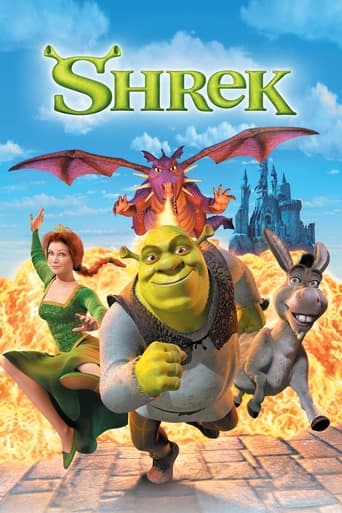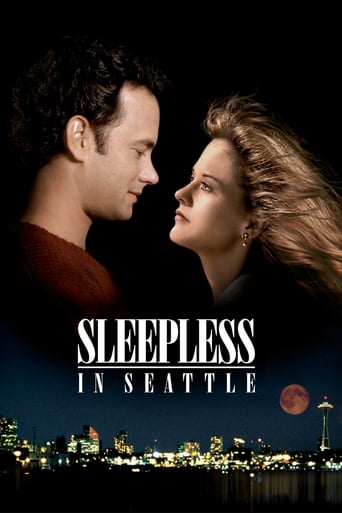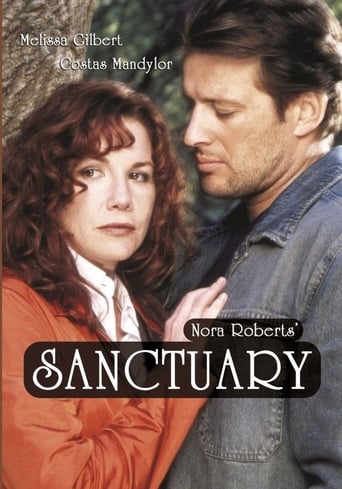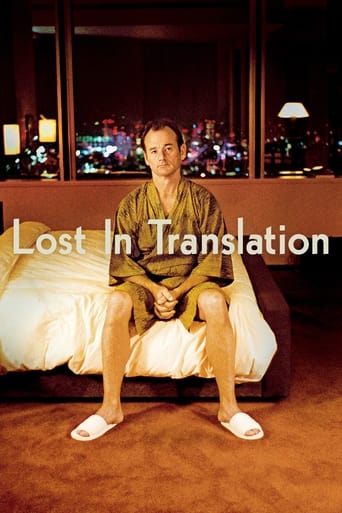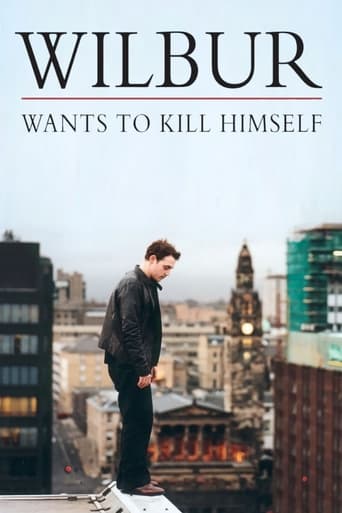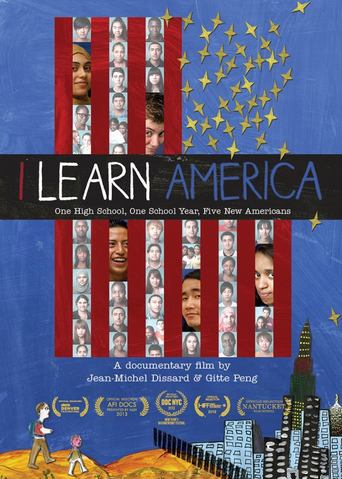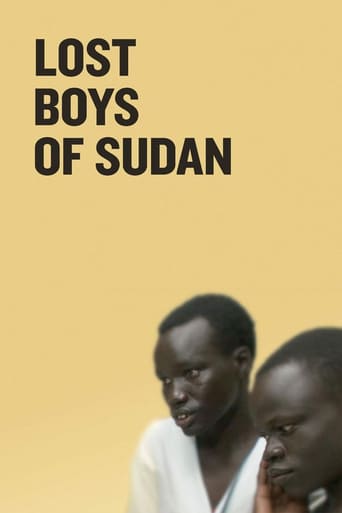
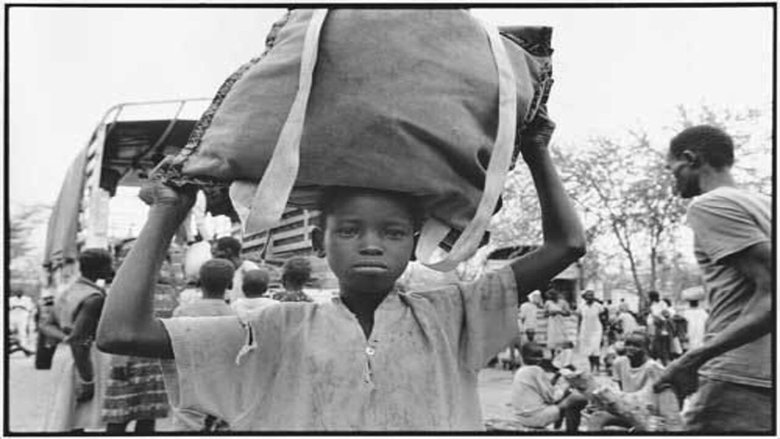
Lost Boys of Sudan (2003)
Lost Boys of Sudan is a feature-length documentary that follows two Sudanese refugees on an extraordinary journey from Africa to America. Orphaned as young boys in one of Africa's cruelest civil wars, Peter Dut and Santino Chuor survived lion attacks and militia gunfire to reach a refugee camp in Kenya along with thousands of other children. From there, remarkably, they were chosen to come to America. Safe at last from physical danger and hunger, a world away from home, they find themselves confronted with the abundance and alienation of contemporary American suburbia
Watch Trailer
Cast


Similar titles
Reviews
In Sudan, the Arabs rule and are constantly at war with the Christians and Animists who inhabit the southern portion of this East African country. This film follows a group of of Dinka boys, a tribe of cattle herders, whom were left orphaned after their village was destroyed and their families killed in a brutal attack carried out by the Arab forces. Most of these boys are now teenagers and have been dubbed "The Lost Boys".The filmmaker follows a group of the "Lost Boys" on their journey, as they have been accepted as refugees in the US, where they will land in Houston. Those who've been accepted as refugees gain celebrity status, as they feel (from what they've heard) that America is amazing. Making a trip from Sudan to America is like "making a trip to heaven" says the one young man. A huge party is thrown for their departure, and they are told to do Sudan well, and once they have been educated, to return to Sudan so that they can contribute to Dinka society. They are also warned not to be like "those with the baggy pants" whom are responsible for the negative stereotype of Black men, and also, no matter what happens, not to forget the Dinka culture.You watch as the boys come from a third world country into America and how they attempt to integrate into American society, as they have gone from a place with practically nothing to this plentiful world where everything is massively overproduced and overconsumed. They are taught about cleanliness and how to use all the utilities that we take for granted on a daily basis. It is humorous at times, humbling at others.Listening to the comments they make about Black Americans and American society/culture are quite interesting. As the film progresses you see how American culture begins to corrupt their previously humble ways of thinking.One of the boys, Peter, is not content with working and making just enough to survive, so he up and moves from Houston to Kansas City so that he can pursue an education. When the other boys visit him, they talk about how they cannot get into any schools. The main reason they came to America was to get an education and the media is saying that the boys have been brought from Sudan for an education. This is occurring because the boys were given arbitrary ages, making them older than they actually are, preventing them from being able to enroll in high school.The film juxtaposes images from Houston to Kansas. We watch as Peter enrolls in school, where he befriends a group of Christian conservative kids, and as Santiago attempts driving school(even though he drives without his license anyways), and works at Walmart. We see Peter struggle with high school life as he strives to make his schools basketball team, and as Santiago has trouble keeping up with work, the rent, appeasing tensions back home in Sudan, and most of all, coping with loneliness.It comes to the point where the boys want to return to Sudan, and tell them that everything they are taught about America there is lies. "You must make it alone here, do everything alone" one of the boys says. A damning message to a Liberal Capitalist lifestyle, showing how it causes people to become radical individualists (a trend which led to the creation of both the neo-conservative and radical islamist movements). Their biggest beef with America though, is that there is no time; time is money and we don't waste a second! Despite all this, the boys never lose their sense of Dinka culture. They celebrate Southern Sudan Liberation Day, which marks the day which the SPLA began to fight in Sudan, a fight which continues today. They also meet with other "Lost Boys" on the anniversary of their arrival in America, where they discuss their experience in America as compared to back in Sudan. When asked, one boy says that if he were able to make a living he would much prefer to live in Sudan. It is much too lonely in America he adds. They never lose their sense of community, which has been conditioned into them as part of their culture!This film makes us question the way we live, makes us question the artificial happiness that materialism and the nature of our societies has created within us. It will also change the way I look at refugees, I will never again take for granted how hard they must work and what immigrants mean for a country such as my own, Canada. This is a wonderful film. I laughed, I cried..a very emotional journey, and a very well made documentary. 10 out of 10.
Well made documentary focusing on two Sudanese refugees who get resettled in the United States. It's your basic fish out of water story with a non-fiction twist. I found it fascinating to see how Peter and Santino lived prior to coming to America and how they adapted once they arrived here (in Houston, Texas.) They expected a sort of heaven but found out that it's a lot harder than it looks to cope well in the states. They go from hopeful idealists to somewhat more realistic skeptics. Everywhere they go they meet bureaucrats with paper trails that most citizens may take for granted. They fret that they are blacker than the African-Americans here and don't feel accepted because of that. One of the "Lost Boys" manages to leave Houston to go to Olathe, Kansas, where he finds conditions slightly better but still less than ideal. There are people that try to help them as well as try to hurt them in this film. Not shown, but talked about, are those who put a gun to their heads and robbed them, leading one Lost Boy to comment negatively that "all black people in America are no good." I found it interesting, too, that they arrived in Houston in August 2001, a month before the World Trade Center was attacked by terrorists. I had hoped to see their reaction to this tragedy but it's not mentioned at all. Still, all in all, a really well done documentary with no narration. None is needed really. The "Lost Boys" do a fine job expounding on the events going on around them without any help at all, thank you very much.
This 2003 documentary focuses on the lives of two young men, Peter Duk and Santino Chuor, who were among the estimated 4,000 African refugees brought to the U.S. after civil war made them refugees. Having lost their families to gunfire, the "Lost Boys of Sudan" walked for hundreds of miles, avoiding lions and nearly starving. They found safety in refugee camps but lingered there for years. The answer for Peter and Santino, and many others, was to head for the United States.The beauty of this documentary is the lack of intrusive voice-overs or fancy editing. No heavy-handed preaching. It simply follows the journey of these young men as they go from a life of huts and eating corn mush to having an apartment of their own and eating at Sonic. Life in the U.S. is not the "heaven" they hoped for, but they do see it as a path to the future and hopefully, a way to bring some kind of help to their native country. While Peter stays behind in Houston, Santino ends up going to high school in Kansas City. It is fascinating to watch the reaction of others to Santino, especially that of his guidance counselor and a fellow student who interviews him for the school paper. The teen seems totally untouched by Santino's story, perhaps because she can't grasp what he's gone through. "The Lost Boys of Sudan" certainly gave me a jolt in realizing that I take a lot for granted. Despite all they've gone through, these young men clearly know where they're going, even if it is a hard row to how. I highly recommend it, especially for teens who may not comprehend how other culture differ from the American way of life.
This documentary is not only one of the best documentaries I've seen, but also one of the most moving and quietly beautiful movies I've seen period. It follows the lives of two Sudanese young men, Peter and Santino, as they try to make their way into the American culture. Peter and Santino are friends at first, but they gradually drift more and more apart, as Peter goes to Kansas City, and Santino stays in Houston ("a land called Houston"). Santino's beauty is in his eyes. He takes people onto his back, he supports an apartment full of other Sudanese, paying the rent, doing everything for other people. He is a quiet sufferer. Peter looks out for himself, getting a high school education while playing basketball and making Christian friends. It seems that director Megan Mylan did not know what she was getting herself into with the beauty of this tale. Peter and Santino are amazing characters that move you. But the real strength in this movie lies in its commentary on American society. It is not judging. It shows the strengths and weaknesses of our world, and how difficult it can be to outside people. I suggest you find this film, and look at America through the lives of these two fascinating and beautiful people.My grade: 10/10



